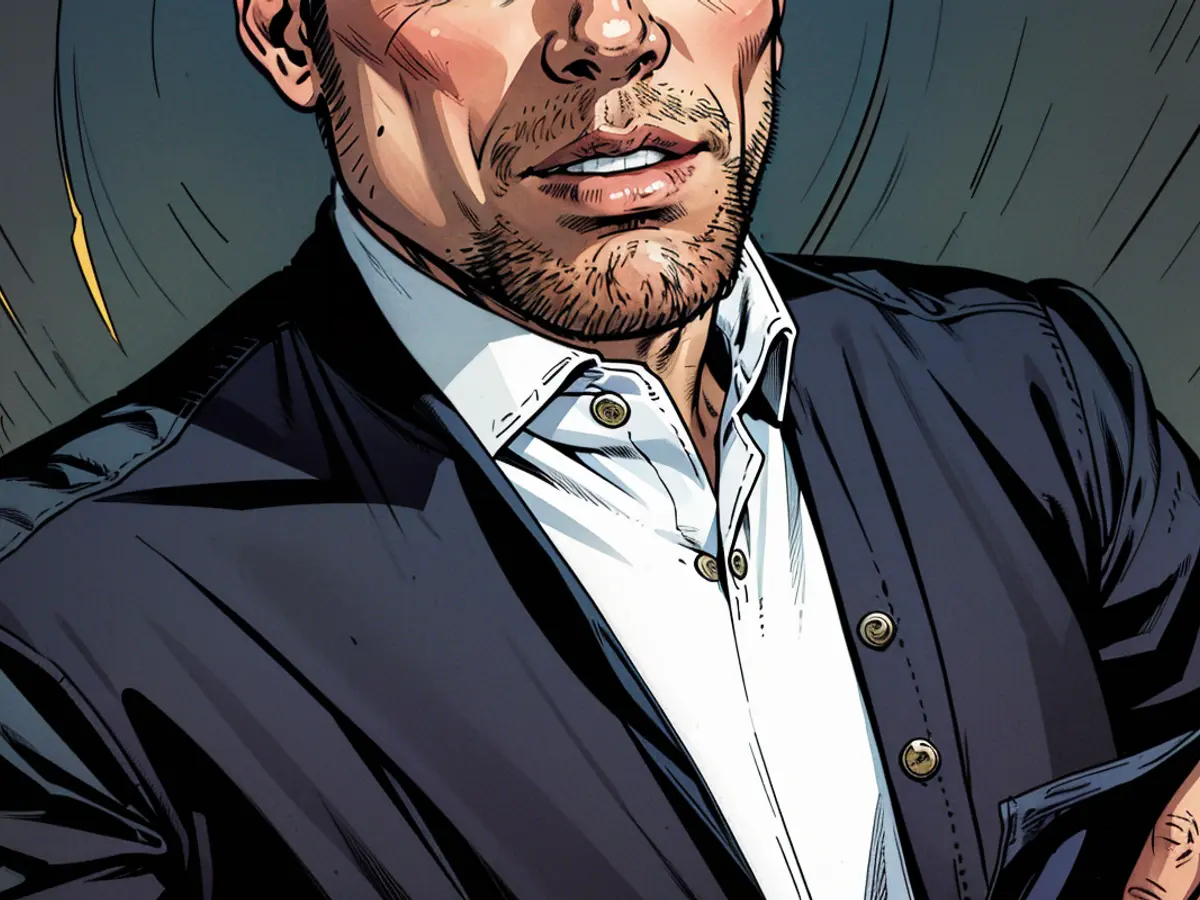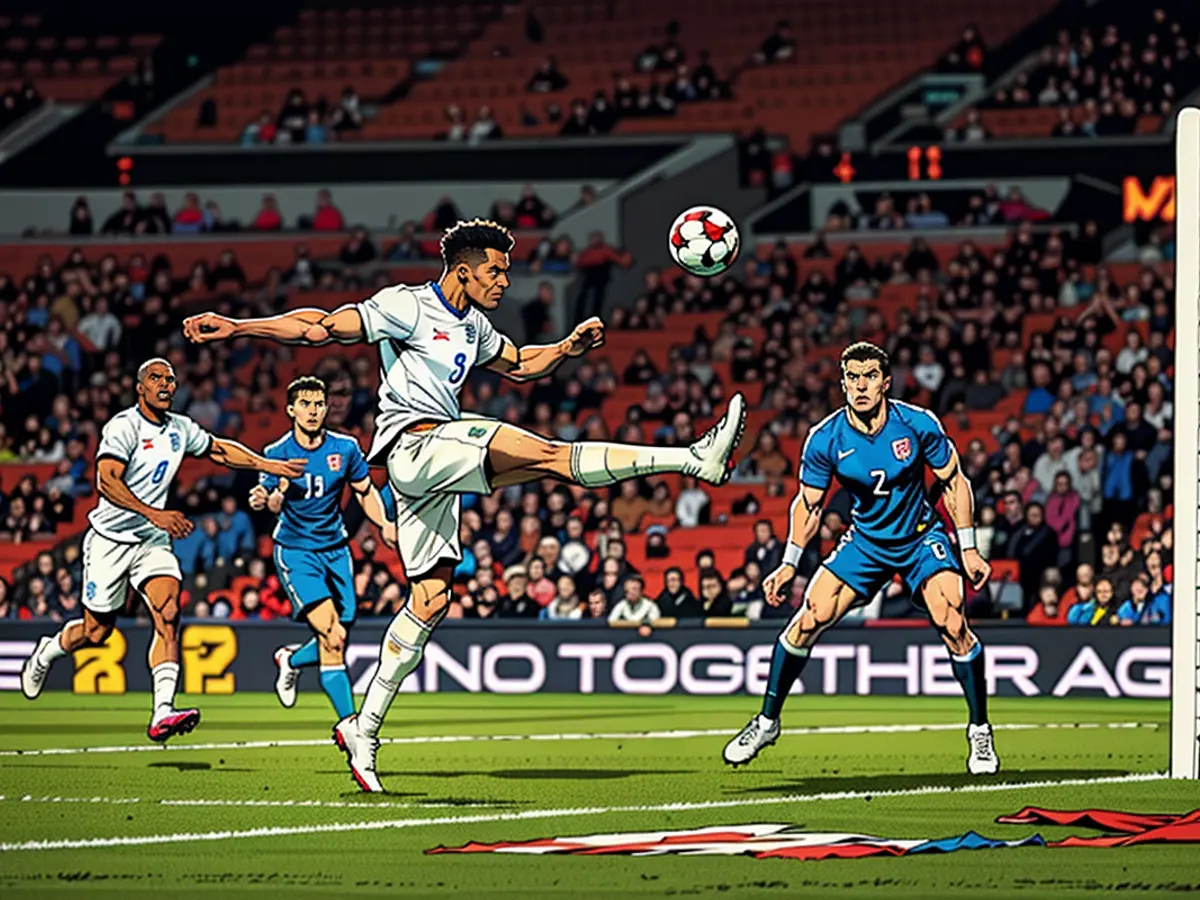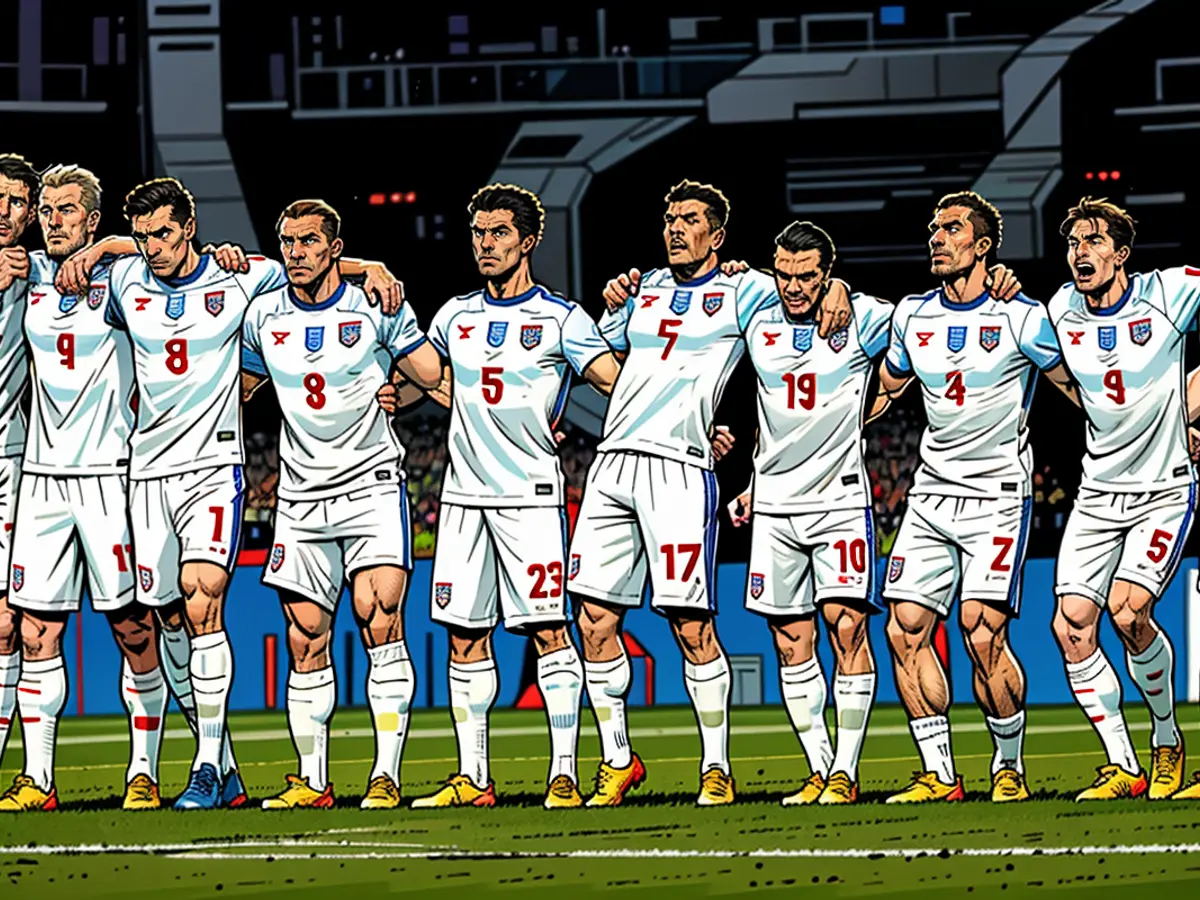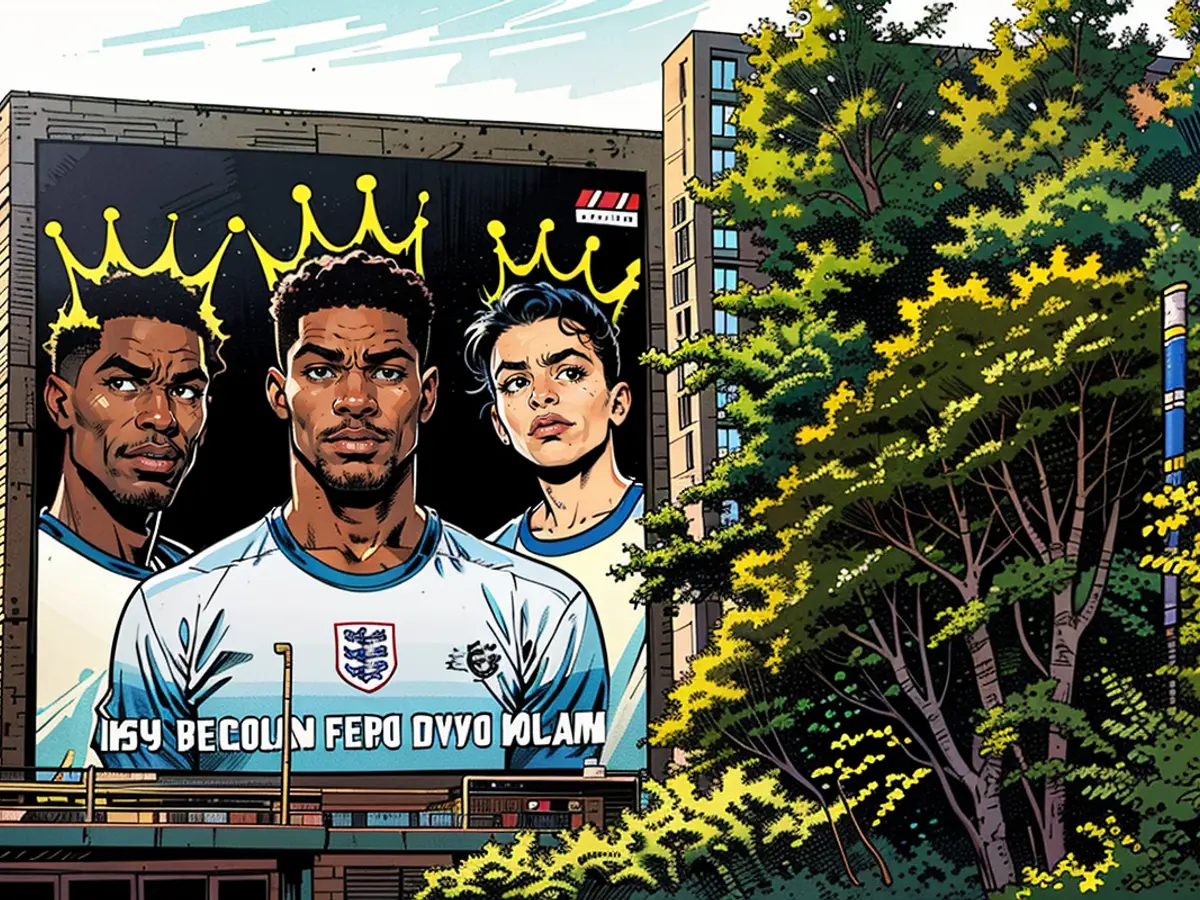Contention: The recent controversy over racism in European soccer
Behind a past event some years ago lies a significant background.
Following England's loss in the Euro 2020 final to Italy in a penalty shootout in July 2021, three Black players in the English team – Marcus Rashford, Jadon Sancho, and Bukayo Saka – were subjected to a deluge of hateful and racist abuse online.
This outrage spread across the nation. Many individuals who posted these vitriolic messages were arrested, and there was an overwhelming show of compassion and support for the three young athletes. Prince William, who serves as the president of England’s Football Association (FA), expressed his disgust over the incident.
Since then, the FA, UEFA, and FIFA have made an effort to ramp up their anti-racism measures. They have launched campaigns focused on preventing, rooting out, and punishing racist abuse, not only in the stadiums but also on social media platforms.
Even though appalling incidents continue to plague soccer at both home and abroad, the recent efforts to combat discrimination may lead one to believe that change is afoot.
For instance, the court decision in Spain that meted out prison sentences to three Valencia fans for hurling racial slurs at Real Madrid’s Vinícius Júnior last year might be seen as evidence of European soccer's tougher stance against racism. These offenders were given eight months in prison and a two-year stadium ban.
As we reflect on these developments, we're led back to Saka, the only one of the trio of 2020 hate-crime victims to be selected for this year's team, set to play against Serbia.
Saka might have anticipated that he would be able to board the plane to Germany for Sunday's match without facing another round of harassment – at least, not to the same degree. Because everyone is aware of the zero-tolerance policy for racism in soccer, right? So Black and brown players across Europe must now be secure, even respected, no?

Saka is aware that UEFA observers will be present at every Euro 2024 match, observing for racist incidents. The federation’s social media team will be vigilantly scouring online platforms for abusive posts, pushing for their removal, and reporting the posters to the police, who have pledged to prosecute wherever possible.
However, racism has found its way back into the world of British soccer, reminding us of a crucial lesson in life—we must never take progress for granted. This time, the alleged culprit is an entity often left out of the anti-discrimination campaigns – the mainstream press.
A few days ago at Wembley Stadium, England lost 1-0 in a friendly match against Iceland, with insults coming from upset home fans. Recently returning from an injury, Saka came on as a substitute in the 65th minute of the match, long after the winning goal had been scored, and had little impact on the outcome.
Yet the following day, media outlets chose Saka's image to illustrate the loss, accompanied by sensational headlines, including one that read “Icy Blues.”
Critics point out that, in the rush of daily news, journalists sometimes make thoughtless decisions. However, this situation seems to go beyond that; it appears to be a deliberate effort by professionals who should know better to put the blame on a Black player for the team's poor performance.
Ian Wright, a former player and commentator, didn’t hesitate to speak out, writing, “We can all see what's happening & who's being targeted as the representative of defeat.” Sir Lewis Hamilton shared a post on his Instagram account from Versus that read, “We need to hold the English media accountable for their systemic targeting of Black players... This blatant racial discrimination has no place in sports, yet countless news outlets suggest otherwise.”
On Monday, Tony Burnett, CEO of the anti-discrimination charity Kick It Out, published an open letter to the press, questioning, “Have the media learned nothing?"

Of course, Burnett is correct, as no journalist in British media can argue they don’t understand the damaging effects of racial bias. When an image of one Black player is featured prominently on the sports page of a major news outlet following a national team's defeat, they give tacit approval to online trolls, soccer fans, and children playing in the park to always blame the Black player when things go awry in a match.
Unfortunately, this isn’t a far-fetched concept for some people — those who carry racism in their hearts. It's not a huge leap from placing the blame on a Black player for a sports team's loss to blaming Black people for the failures of a nation. This recent wave of alleged "racist dog-whistling" by Conservative politicians demonstrates that those with public platforms should exercise caution.
It would take an extraordinary level of naivety to believe that systemic racism has been completely eradicated in the UK. While recent protests and shocking investigations may have drawn attention to the anti-racism movement and gained new allies, we cannot afford to become complacent. Football, like society, has a long and disgraceful history of dehumanizing people based on their race or ethnicity.
Emphasizing the substantial flaws that prominent individuals and various global organizations have identified within the sports sector to eradicate all kinds of discrimination is crucial. We ought to endorse their initiatives to eliminate discrimination from sports entirely.
We ought to appreciate the courageous work of anti-racism foundations like "Show Racism the Red Card" and Kick It Out, which combat racism in soccer and beyond by implementing campaigns and educational programs.
However, it's essential for each individual to assume personal responsibility for their actions and remain vigilant, as racism can easily resurface even with minor provocations. It's crucial to be cautious about the comments we make, the content we share on social media, and the images we decide to publish.
I wish the England team triumphs in Euro 2024. If they fail, I hope no player, regardless of their skin color, is unfairly targeted and burdened with the nation's collective sorrow. Remember, sports are merely pastimes. Yet, the positive aspects of these activities are striving to combat hate, and we all need to join in this fight.

Read also:
Despite the efforts made by the FA, UEFA, and FIFA to combat racism in soccer, recent incidents have demonstrated that progress cannot be taken for granted. For instance, Bukayo Saka, a player who was a victim of racism in the past, was portrayed negatively in the media following a loss in a friendly match, leading to accusations of racist dog-whistling. Many individuals, including Ian Wright and Sir Lewis Hamilton, expressed their concerns about this issue, urging the media to hold themselves accountable for their actions. The public outcry has sparked discussions about systemic racism in the UK and the need for continued efforts to combat discrimination in all forms. The recent controversy over racism in European soccer has also highlighted the importance of individuals assuming personal responsibility for their actions and remaining vigilant in combating racism, as subtle forms of discrimination can easily resurface even with minor provocations. As a result, the public's opinions on this matter have become increasingly varied and vocal, with many calling for more transparency and accountability from influential figures in society.







